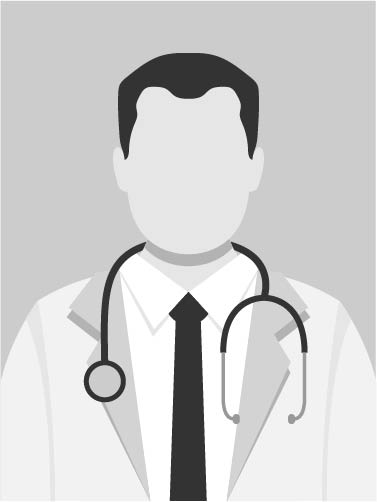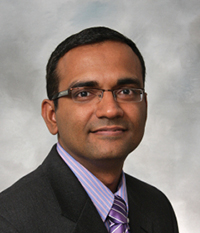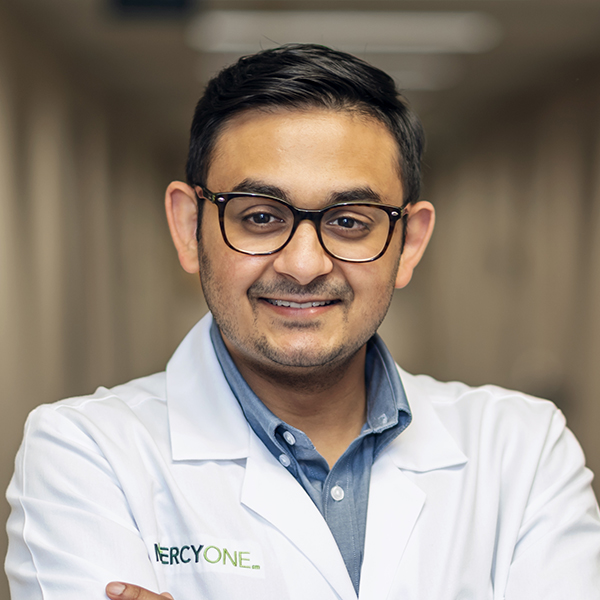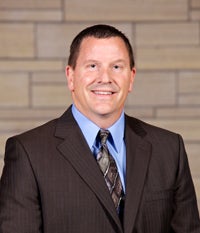General Surgery Services
Our general surgery specialists focus on the treatment of various diseases and conditions that require surgery. We use minimally invasive endoscopic and laparoscopic surgical techniques with most conditions. Our general surgeons perform a wide variety of procedures, including:
- Anorectal Conditions, Including Hemorrhoids, Anal Fissures and Abscesses
- Appendectomy
- Care of Blunt and Penetrating Trauma
- Colonoscopy
- Comprehensive Bariatric Surgery
- Comprehensive Management of Breast Cancer
- Comprehensive Reflux and Heartburn Care, Including Medical and Surgical Options and Upper Endoscopy
- Endovascular Ablation
- Gallbladder Disease
- Lipomas
- Management of Adhesive Small Bowel Obstruction
- Management of Benign Breast Conditions
- Pilonidal Disease
- Repair of Hernias, Including Inguinal, Femoral, Umbilical and Incisional, Using Open and Robotic Techniques
- Skin and Soft-Tissue Infections
- Skin Cancers
- Surgical Management of Colorectal Cancer with Open and Minimally Invasive Approaches, Including Laparoscopic and Robotic Surgery
- Surgical Management of Diverticular Disease, Including Open, Laparoscopic and Robotic Approaches
- Thyroid and Parathyroid Surgery for Cancer and Benign Conditions
- Varicose Veins
Anorectal Conditions, Including Hemorrhoids, Anal Fissures and Abscesses
A group of disorders that occur in the anal canal and rectum are called anorectal disorders and include hemorrhoids, abscesses and anal fissures or fistulas. These can cause symptoms such as pain, itching, burning, bleeding and swelling, which can significantly affect one’s life. Anal fissure is a small tear in the anal lining. Fissures are often caused by chronic constipation, diarrhea or straining to have a bowel movement. They can become chronic and painful if they are not treated, but most can be treated without surgery. Abscess and fistula are related conditions that can occur when a gland lining the anal canal becomes blocked, which leads to infection. An abscess can develop into a fistula if not treated. A fistula is an abnormal connection between the anal canal and the skin. Fistulas typically require surgical repair.
Appendectomy
The appendix is a thin pouch attached to the lower intestine. Our surgeons perform appendectomy, a common emergency procedure to remove an infected appendix. This infection, called appendicitis, can cause the appendix to burst if not treated – a life-threatening condition. Acute appendicitis typically starts with sudden and severe pain in the lower right abdomen, often accompanied by nausea and fever. When this occurs, it is best to seek immediate medical attention. Our surgeons use both open surgery and minimally invasive laparoscopic approaches to remove the appendix. A typical hospital stay after appendectomy is one to three days, and recovery usually takes one to three weeks. In cases where the appendix ruptures, expect longer hospital stays and longer recoveries.
Care of Blunt and Penetrating Trauma
Blunt trauma can be caused by falls, auto accidents, assaults and sports injuries. Penetrating trauma includes stab wounds and gunshot wounds. Those who have suffered blunt and penetrating traumas require immediate medical attention. Medical and surgical management usually involves supportive care such as blood transfusion and respiratory support along with the removal of foreign bodies and surgical repair of damaged structures.
Colonoscopy
Colonoscopy is the “gold standard” for diagnosing colon cancer. The procedure is both diagnostic and therapeutic in that we can use the colonoscope to identify and remove pre-cancerous polyps that form in the large intestine and rectum. Colonoscopy also reveals irritated or swollen tissues, ulcers and cancer. The procedure typically takes about 30 minutes or longer depending on the size and number of polyps the surgeon finds. Despite what many think, colonoscopy is normally a painless procedure because the individual is most often sedated and only experiences some cramping, bloating or flatulence immediately after the procedure. Some undergo the procedure without sedation, and nearly three-quarters of those that do this say they would do it without sedation again, since nearly half experienced only slight or mild pain during the procedure.
Comprehensive Bariatric Surgery
Bariatric (weight loss) surgery is often the best or only answer for those who are obese or morbidly obese. The National Institutes of Health (NIH) recognizes bariatric surgery as the only effective method of combating severe obesity and maintaining long-term weight loss. Our surgeons provide comprehensive bariatric surgery, including gastric bypass, gastric sleeve and laparoscopic adjustable gastric banding. Bariatric surgery works by changing the anatomy of your stomach and digestive system and causing changes in your body, energy balance and fat metabolism. Unlike other weight loss strategies, bariatric procedures affect the production of intestinal hormones in a way that reduces hunger and appetite while increasing sensations of fullness. This reduces your desire to eat and your frequency of eating. These surgically induced hormonal changes result in long-term weight-loss success. Most studies show that over 90 percent of those with severe obesity are successful in maintaining 50 percent or more of their excess weight loss following bariatric surgery. The same cannot be said for conventional therapies such as dieting, eating fewer calories, increasing exercise or using commercial weight-loss programs.
Comprehensive Management of Breast Cancer
Our general surgery team provides comprehensive management of breast cancer in diagnosed patients. We take different approaches to care based on the cancer’s physical and biological characteristics. Items including age, overall health and personal preferences help us determine whether to use systemic treatment or localized therapy. Localized therapy may include surgery and/or radiation treatments, while chemotherapy and hormone therapy are considered systemic.
Comprehensive Reflux and Heartburn Care, Including Medical and Surgical Options and Upper Endoscopy
Acid reflux and heartburn are extremely common, with heartburn symptoms affecting up to 60 million Americans at least once per month. GERD, or gastroesophageal reflux disease, affects millions of people each year. Stomach acid or bile can back up through the food pipe (esophagus) and irritate the lining. If you have burning pain in your chest after eating, you might have GERD, especially if the pain becomes worse when you lie down. When lifestyle changes, OTC medications and stronger prescription medications don’t provide relief, surgery becomes an option. Our surgeons perform minimally invasive upper endoscopy to diagnose and biopsy inflamed esophageal lining tissue, then provide appropriate treatment. For additional information about GERD treatment, click here. (link to https://www.mercyone.org/northiowa/find-a-service-or-specialty/general-…)
Endovascular Ablation
Also called endovascular radiofrequency ablation, this catheter-based treatment can reduce varicose veins and chronic venous insufficiency in less time, with less bruising and faster recovery. It also eliminates the need for general anesthesia. Instead of surgically removing the vein, radiofrequency ablation works by destroying the swollen vein segment using thermal (heat-based) energy. We encourage those receiving this treatment to get up and walk immediately after the procedure.
Gallbladder Disease
The gallbladder is a pear-shaped organ just below the liver that stores bile. Bile helps digest fats in the gut. Gallbladder disease actually refers to several conditions that can affect gallbladder health, including gallstones, cholecystitis, cholestasis and gallbladder cancer. Gallstones are hardened cholesterol deposits within the gallbladder fluid. Cholecystitis is an inflammation in the gallbladder, while cholestasis is when the flow of bile from the liver slows down or stops. Those most affected by gallbladder disease tend to be light-skinned, overweight, in their 40s and female with a history of several pregnancies. Gallbladder cancer is extremely rare and affects fewer than 4,000 Americans per year. Symptoms of gallbladder disease include pain in the middle of the abdomen, chest or back. It can cause nausea, vomiting, fever, shaking chills, changes in bowel movements and urine, even jaundice.
Lipomas
A lipoma is actually a lump of fat, a soft, rubbery bulge that can form just about anywhere on the body. A lipoma is actually a harmless tumor that most often appears on the upper body, arms or thighs in middle-aged men and women. Lipomas can also form inside the body, in muscles or internal organs, but these are rare. If a lipoma causes pain or affects your muscles, you might need to have it removed. A lipoma may be a type of cancer called a liposarcoma, which grows rapidly and can be painful, but it is extremely rare. In many cases, you won’t need treatment and the lipoma will not harm you. Still, if you have a lipoma that hurts or negatively impacts your appearance, you may want to have it removed.
Management of Adhesive Small Bowel Obstruction
Abdominal adhesions most often develop after abdominal surgery as part of the normal healing process. While intra-abdominal adhesions (abnormal joining of membranous surfaces) have some beneficial effects, they can also cause adhesive small-bowel obstruction. As you might imagine, bowel obstruction is a serious blockage that prevents foods and liquids from passing through either the large or small intestine. This can cause loss of appetite, vomiting, constipation, a swollen belly, stomach cramps and an inability to pass gas. Our surgeons can treat and manage patients suffering from adhesive small-bowel obstruction.
Management of Benign Breast Conditions
Benign breast conditions are those that are non-cancerous and may include lumps, cysts, tumors or nipple discharge in male and female patients. About 80 percent of breast tumors or lumps are non-cancerous. Some lumps may even resolve on their own without treatment. One may have multiple small cysts (fluid-filled sacs). These fibrocystic changes are a response to hormonal changes. Fibrocystic breasts are the most common benign breast condition in women between 20 and 50 years of age.
Pilonidal Disease
This is a common condition, particularly in men from puberty to about age 40. Men and women who are obese and have thick body hair are most prone to pilonidal disease, a skin infection that occurs at the upper crease of the buttocks near the tailbone (coccyx), often as a reddish or brown cyst. The cyst is not serious but could easily become infected, form an abscess and cause foul-smelling pus to drain out. Though not serious, pilonidal disease should be treated.
Repair of Hernias, Including Inguinal, Femoral, Umbilical and Incisional, Using Open and Robotic Techniques
Hernias are extremely common and occur when soft tissue bulges through a weak spot in the groin or stomach or a surgical incision. The five main types of hernias are inguinal, femoral, umbilical, incisional and hiatal. Inguinal hernias occur in the inner groin while femoral hernias occur in the outer groin. Umbilical hernias occur at the navel or belly button while hiatal hernias occur in the upper stomach, and incisional hernias occur around surgical incisions. Common symptoms are bulges, swelling and pain, yet some cases have no symptoms. All hernias should be treated because they will not go away on their own and often get worse. Our surgeons use both open and minimally invasive robotic surgery to repair or remove hernias.
Skin and Soft-Tissue Infections
Skin and soft-tissue infections (SSTI) include various conditions that involve microbial invasion of skin layers and underlying soft tissues. They account for over 14 million doctor visits annually. They run the gamut from mild infections (e.g. pyoderma) to serious and life-threatening infections (e.g. necrotizing fasciitis). Skin infections typically present with swelling, warmth, tenderness and pain. Treatment for SSTIs will depend on their severity and location of the infection. Some will require an incision and drainage or debridement. About 60 percent of ER visits are from MRSA, a community-acquired methicillin-resistant Staphylococcus aureus infection that can be life-threatening because it resists so many antibiotics.
Skin Cancers
Skin cancer is the abnormal growth of skin cells, most often the result of overexposure to the sun’s harmful rays. Skin cancer can also appear on parts of the body not exposed to the sun. The three major types of skin cancer are melanoma, basal cell carcinoma and squamous cell carcinoma. These can affect people of all ages and all skin tones. As with all cancer types, early diagnosis provides the best chance for effective treatment and a cure. If you notice any changes to your skin that worry you, see your doctor as soon as possible. Keep in mind that not all skin changes are caused by skin cancer. Your provider will look to find the cause of your skin problem and then recommend appropriate treatment.
Surgical Management of Colorectal Cancer with Open and Minimally Invasive Approaches, Including Laparoscopic and Robotic Surgery
Our general surgery team provides surgical management of colorectal cancer patients, including minimally invasive laparoscopic and robotic surgery, as well as open surgical approaches. Surgery is the most common treatment for colorectal cancer. Whether we remove a pre-cancerous polyp during a colonoscopy or the entire colon, our surgeons are expert in surgical management. Colorectal cancer surgery often involves removing tumors, removing the section of the colon where a tumor has been found plus some surrounding normal tissue and the nearby lymph nodes, in some cases. The removal of all or a portion of the colon is called colectomy. Keep in mind that open surgery typically involves longer incisions, more scarring and longer recovery times compared to minimally invasive laparoscopic or robotic approaches.
Surgical Management of Diverticular Disease, Including Open, Laparoscopic and Robotic Approaches
Diverticulitis, also called colonic diverticulitis, is a disease characterized by small pouches that form in the digestive tract. These small pouches are called diverticula and develop on the walls of the intestines. Diverticulitis is a more serious disease, involving anything from a small abscess in one or more of the pouches to a massive infection or perforation of the bowel. Symptoms may include stomach pain, bloating, cramping, nausea, a change in bowel movements, blood in stool, constipation or diarrhea and fever. We recommend a high-fiber diet after recovery to help prevent future problems. We recommend fiber-rich foods, fresh fruits, vegetables and whole grains. These soften waste and help it pass more easily down the colon. Many still believe that eating seeds and nuts is associated with developing diverticulitis, but that has not proven to be the case.
Thyroid and Parathyroid Surgery for Cancer and Benign Conditions
The thyroid gland controls much of the body’s metabolism while the parathyroid controls calcium in the blood. These glands are located close to each other but are otherwise unrelated. The most common surgery for thyroid cancer is thyroidectomy, or removal of the thyroid gland. For parathyroid cancer, which is quite rare, the choice of surgery depends on whether the cancer is contained within the gland or has spread (metastasized) to nearby lymph nodes, lung tissue, etc. As with most cancers, the earlier the diagnosis of thyroid and parathyroid cancer, the higher the cure rate. Thyroid nodules are usually benign and parathyroid tumors are often benign, as well. Too little calcium in the blood is known as hyperparathyroidism while too much calcium in the blood is called hyperparathyroidism.
Varicose Veins
In addition to being unsightly, varicose veins can cause pain and discomfort. There are many treatments available for varicose vein removal, including wearing compression stockings, elastic bandages and exercise, and medical procedures such as ambulatory phlebectomy, endothermal ablation, sclerotherapy, ligation and stripping, endoscopic vein surgery and even laser surgery. Some believe that apple cider vinegar helps recoil swollen veins and restore their pliancy due to its astringent properties. It is best to consult with your provider before trying any home remedies or supplements.












